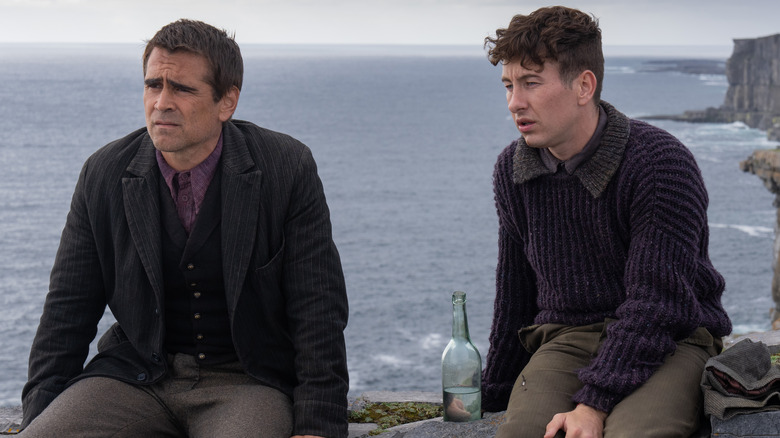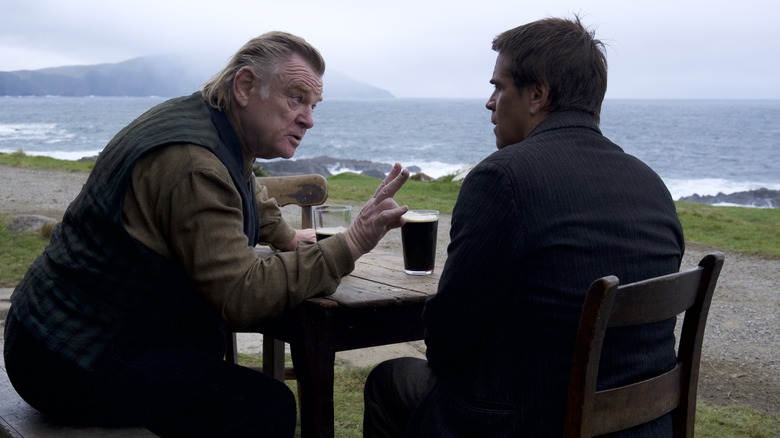The Banshees Of Inisherin Makes More Sense If You See It As Adam & Eve's Story
"The Banshees of Inisherin" writer and director Martin McDonagh is no stranger to Christian imagery in his movies and plays. His 2008 cult movie "In Bruges" features a reference to a painting of The Last Judgment by Hieronymous Bosch. Meanwhile, in "Seven Psychopaths," Hans (Christopher Walken) is a Quaker enacting revenge against the born-again criminal who killed his daughter.
McDonagh, who has been nominated for several Academy Awards this year including Best Director and Best Picture, grew up as an Irish Catholic in London. The filmmaker spoke about growing up with the Church in 1998, commenting, "It's only in the process of rejecting something that you think about why you were brought up that way in the first place."
"The Banshees of Inisherin" has one of McDonagh's strangest and most allegorical plots, but the story actually comes together when you see it as a retelling of an early Bible tale. Here's why.
The Banshees of Inisherin has strong Catholic imagery
Michael McDonagh's newest movie features two lifelong friends on the fictitious Irish isle of Inisherin, Colm (Brendan Gleeson) and Pádraic (Colin Farrell), who stop seeing each other when Colm decides Pádraic is simply too "dull." Instead of hanging out at the pub, Colm wants to focus on learning and playing more music. But when Pádraic won't accept this break, their feud soon involves heartbreak, severed fingers, and escalating violence.
America Magazine discusses how "The Banshees of Inisherin" is focused on Catholic ideas of free will and condemnation. "McDonagh's vision is one that acknowledges the legacy of sin, from which no human being is exempt, including the seemingly innocent Pádraic." The article also points out that the Catholic Church in Inisherin does little to stop anyone's suffering even when everything gets worse.
In a Good Morning America interview with the cast, Gleeson mused that the movie is "kind of a Garden of Eden story, isn't it?" The actor elaborated that his character, Colm, wants the same thing as Eve: "I want to know what the apple tastes like." Like Eve, Colm also seeks something different from his isolated existence, and he ultimately pays a price for that.

